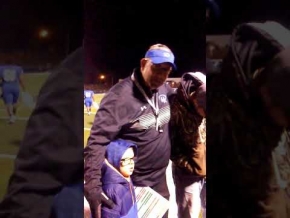Parents a factor in stopping the under-age drinking rite of passage
Underage drinking is
seen in many areas as a
“rite of passage.” Parents
sometimes feel that minors
will drink anyway, so it
would be safer for their
child to drink in their presence.
Social hosting is illegal
and can have serious
consequences that can be
lifelong. In Texas, parents
who allow minors to partake
of alcohol, even at
home, can be held liable if
the child is injured or killed
due to alcohol use.
Underage drinking is
especially prevalent during
Spring Break, as well as
around Prom and
Graduation. Many parents
opt to host events at their
homes or properties where
minors are able to drink
alcohol in what many
adults deem a “safer” environment.
Taking their
keys, offering a place to
“sleep it off,” and limiting
their consumption are
steps parents take in an
attempt to justify giving
alcohol to minors.
The Texas Alcoholic
Beverage Commission
reminds parents that Texas,
along with many other
states, assigns responsibility
for underage drinking
not only to the teens who
consume alcohol but also
to the adults who provide
it. Adults who serves or
supply alcohol to persons
under the age of 21 can be
held liable if any of those
underage persons are killed
or injured. Adults can also
be held responsible if teens
who drink at their homes
kill or injure another person,
according to information
found on the TABC
website. Also noted on the
website, is that underage
drinking is associated with
the three most common
causes of teenage deaths:
accidental, homicides, and
suicides. In fact, the
National Traffic and
Highway Safety
Administration reports
that Texas leads the nation
in the rate of alcoholrelated
traffic deaths
among 15- to 20-year olds.
Underage drinking laws
are set up to protect minors
and their communities
from the tragedies, and
sometimes deadly consequences
of underage drinking.
In Texas, parents and
other adults will be held
civilly liable for damages
caused by an intoxicated
minor under the age of 18,
if the adult knowingly provided
alcohol or allowed
alcohol to be served on
property owned or leased
by them and one of the following
occurs: the minor is
injured or dies as a result or
drinking on the property,
the minor gets in a fight,
falls and hurts themselves,
or is sexually assaulted, the
minor damages someone
else’s property, or if the
minor is drinking on property,
leaves, and is involved
in a motor vehicle crash
that causes injury to themselves
or others.
It is against Texas law to
make alcohol available to a
person younger than 21
even in a private residence,
even if parental permission
is granted. This same law
applies to providers under
the age of 21, as well. If
found guilty of breaking
the law, parents or adults
can face the following: a
fine up to $4,000; and/or
up to one year in jail and
180 days automatic driver’s
license suspension, upon
conviction.
As parents learn the dangers
and consequences of
underage drinking, the
hope is that they will begin
to make a decision to not
allow minors to partake of
alcohol, even in their presence.
- Log in to post comments








